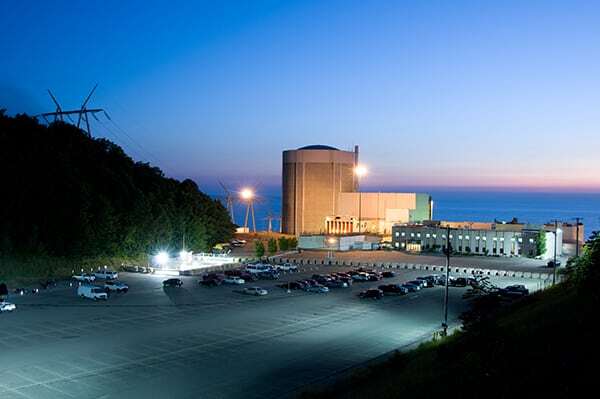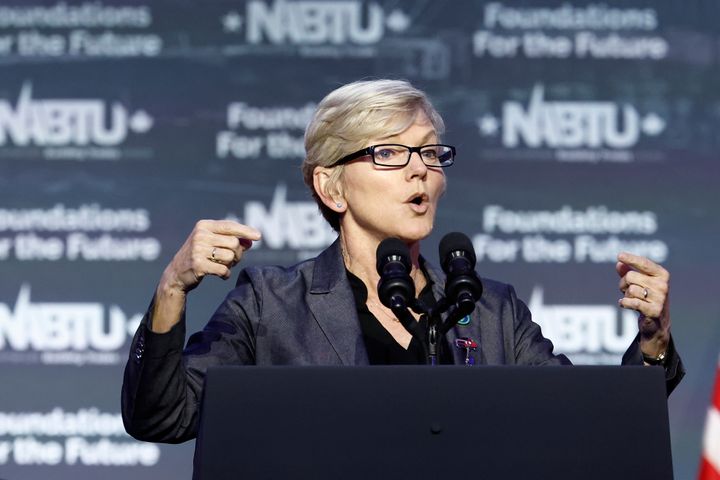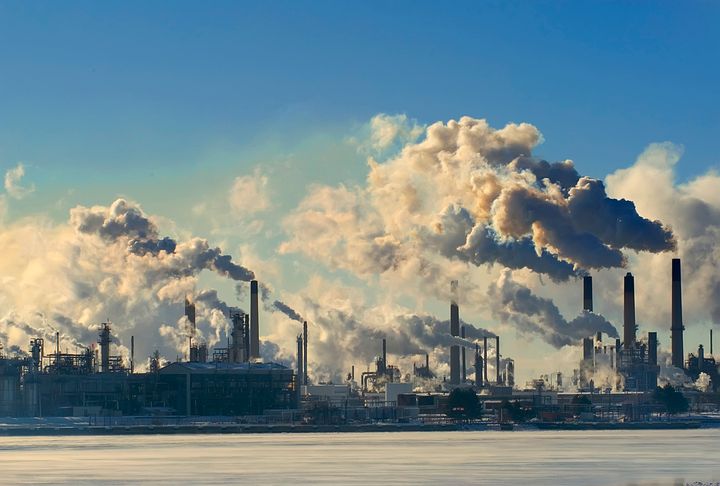The United States’ effort to reverse the permanent shutdown of a nuclear station for the first time hit a potential snag this week when an ex-employee at the facility went public with safety concerns about reopening the 53-year-old power plant.
Now the company that owns the Palisades Nuclear Generating Station on Michigan’s southwest coast is hitting back at what it called a series of “assumptions” and “inaccurate statements” from Alan Blind, a former engineering director.
Blind’s seven-year tenure overlapped with “a period when the plant performed poorly and required significant improvements” and ended nearly a decade before its closure two years ago, according to Florida-based Holtec International, which bought the station from utility giant Entergy following its shutdown in May 2022.
In an unusually pointed 1,000-word rebuttal, Holtec said “significant investments, upgrades, and modifications were made by the prior owner to dramatically and measurably improve plant reliability” in the nine years after Blind’s departure. The company said the process is “on schedule” and announced at a public meeting this month that the plant is on track to reopen in October 2025.
But Blind cast doubt on Holtec’s proposed budget and timeline for restoring Palisades given that no U.S. reactor has ever come back online after ceasing operations ahead of a planned demolition.
Resurrecting the Palisades plant is among the most closely watched nuclear projects in the nation now that construction is finally finished on the only two new reactors built from scratch in a generation.
While atomic energy is considered by far the most reliable source of carbon-free electricity ever harnessed, the steep cost and decade-long timelines for constructing new plants limit the potential for nuclear power to meet Americans’ surging electricity demand, stem rising blackouts and slash planet-heating pollution from fossil fuels.
New laws Congress passed over the past three years made billions of dollars available to the nuclear energy industry to extend the operating lives of existing plants, build new reactors and catch up with Russia and China on next-generation nuclear power technologies.

The money is going out. In January, the Biden administration put up $1.1 billion to keep California’s last nuclear power station from closing. Two months later, the Department of Energy offered Holtec a loan worth $1.5 billion to make Palisades the first U.S. nuclear plant to ever come back online after shutting down in preparation for decommissioning.
At least two other utilities are now considering restarting shuttered nuclear reactors, including the unit at the Three Mile Island facility in Pennsylvania that did not melt down in 1979.
On Monday, Reuters cited Blind saying the Palisades plant received waivers from the U.S. Nuclear Regulatory Commission that exempted the facility from modern safety standards that prevent insulation on pipes from breaking down and clogging cooling systems, guard against earthquakes and curb risks from fires.
“I’m worried that the NRC will not insist that the generic safety issues be … fixed before they allow Palisades to restart,” Blind said in the newswire report published Monday.
But in its rebuttal, Holtec said Palisades has not filed for exemptions on any of the issues Blind laid out, calling all but one of his claims “inaccurate.” The company acknowledged that it had deferred upgrades to the fire system due to the shutdown, but said those are “now being completed as required by the NRC prior to restart.”
In an hour-long interview with HuffPost on Friday, Blind said Reuters had inaccurately described his complaints as being about NRC exemptions. (Reuters did not immediately respond to an email requesting comment.)
But Blind said Entergy had, for years, postponed complying with requests from the NRC only to ultimately give up its operating license and sell to Holtec, which primarily works to disassemble and demolish defunct nuclear plants. Given the billion-dollar cost overruns and delays in building new reactors elsewhere in the U.S., Blind said “there’s no basis” for Holtec’s proposed schedule and that “there’s no basis that the NRC is even going to approve any of it.”
“That’s all pending,” he said by phone. “There’s just so many questions about this whole thing that the probability of success has to be considered to be very low.”

The NRC said the agency’s staff “was already aware of every safety-related issue Mr. Blind has raised.”
“Holtec must demonstrate it has resolved those issues before the agency will reach a decision on whether to authorize a resumption of operations at Palisades,” Scott Burnell, an NRC spokesperson, said in an email. “The NRC’s safety and environmental reviews, as well as inspections of work Holtec has underway, continue on schedule.”
The agency said the process would take about a year.
The NRC has no rule specifically tailored to restarting a shuttered nuclear plant. Blind said the Palisades project should be halted until the agency enacts such a regulation, and submitted a petition to the NRC urging the agency to begin a formal rulemaking process.
But Burnell said the NRC previously supervised the Tennessee Valley Authority’s restoration of Unit 1 of the Browns Ferry Nuclear Plant in the mid-2000s, two decades after the reactor went dormant for repairs.
“This is not a perfect analog, but in the 2000s, the Tennessee Valley Authority took several years to return Browns Ferry Unit 1 to operations,” Burnell said. “The NRC’s oversight of that process was similar to what is currently underway with the Palisades effort.”
While Holtec acknowledged fraying insulation could clog cooling systems, the company said the issue “is known within the industry” and would be dealt with prior to any restart.
Sola Talabi, a reactor safety expert at the University of Michigan who specialized in the breakdown of pipe insulation, called the problem “a generic industry issue” with straightforward fixes.
“None of what was mentioned is new or unknown,” Talabi, who is not involved in the Palisades project, said after reviewing Blind’s claims. “There are solutions that can be implemented to address those issues.”
“To me, the question is not, ‘Can it be done in a year?’ but rather, ‘Why should it take more than a year?’”
- Sola Talabi, nuclear safety expert at the University of Michigan
Talabi, a 24-year industry veteran who has focused most of his career on safety issues, said, “It is good practice for a concerned employee to raise an issue.”
“That’s generally encouraged as part of the nuclear safety culture,” he said. “It’s good that if you see something, say something. That’s how we’re all trained.”
But Talabi said there was no reason for any of the issues Blind raised to delay Holtec’s timeline for bringing Palisades’ single mothballed reactor back online in roughly a year.
“To me, the question is not, ‘Can it be done in a year?’ but rather, ‘Why should it take more than a year?’” Talabi said.
Blind described himself as “pro-nuclear” in the Reuters story and told HuffPost he does not see himself as an advocate against the industry. But he said he shares the view of anti-nuclear activists such as Bill McKibben and Greta Thunberg that operating plants should remain open without constructing new reactors like the ones countries such as China, India and Poland are banking on to meet climate goals.
Blind said he would only support the construction of new reactors once the U.S. develops a plan to store the radioactive waste the industry produces, which is minuscule relative to the air pollution and planet-heating carbon dioxide fossil fuels generate and the growing trash heaps of busted solar panels and wind turbines.
In May, Blind appeared in six episodes of a podcast series released by the anti-nuclear advocacy group Beyond Nuclear. The other major guests on the show were the longtime anti-nuclear activist Kevin Kamps and Mark Z. Jacobson, the controversial Stanford University professor behind widely contested claims that solar panels and wind turbines are sufficient to replace fossil fuels.
Blind said he doesn’t agree with everything Beyond Nuclear promotes. A spokesperson for the Maryland-based nonprofit did not return a call requesting comment Friday morning.
“Hopefully it was clear my views were specific to Palisades and didn’t go beyond that,” he said.

What happens at Palisades will likely ripple far beyond Michigan, however.
“We’ve obviously seen what happened with Palisades,” Joe Dominguez, the chief executive of Constellation Energy, said in May during a quarterly earnings call with investors. “I think that was brilliant.”
In July, Dominguez’s company — the largest operator of nuclear reactors in the country — floated plans to restart the unit of Pennsylvania’s Three Mile Island power station.
NextEra Energy, the nation’s biggest renewables operator, is considering bringing back its Duane Arnold Energy Center, the central Iowa facility that closed in 2020.
“There would be opportunities and a lot of demand from the market if we were able to do something with Duane Arnold,” NextEra CEO John Ketchum said on a call with investors last month.
“We’re looking at it,” he added. “But we would only do it if we could do it in a way that is essentially risk-free, with plenty of mitigants around the approach. There are a few things we would have to work through.”
Disclaimer: The copyright of this article belongs to the original author. Reposting this article is solely for the purpose of information dissemination and does not constitute any investment advice. If there is any infringement, please contact us immediately. We will make corrections or deletions as necessary. Thank you.
